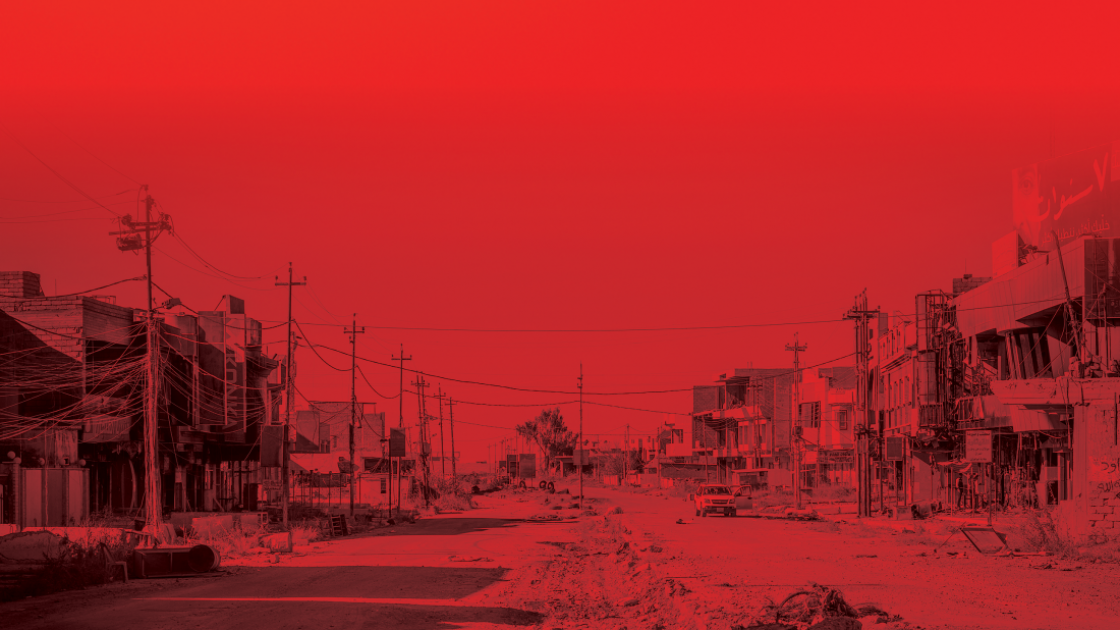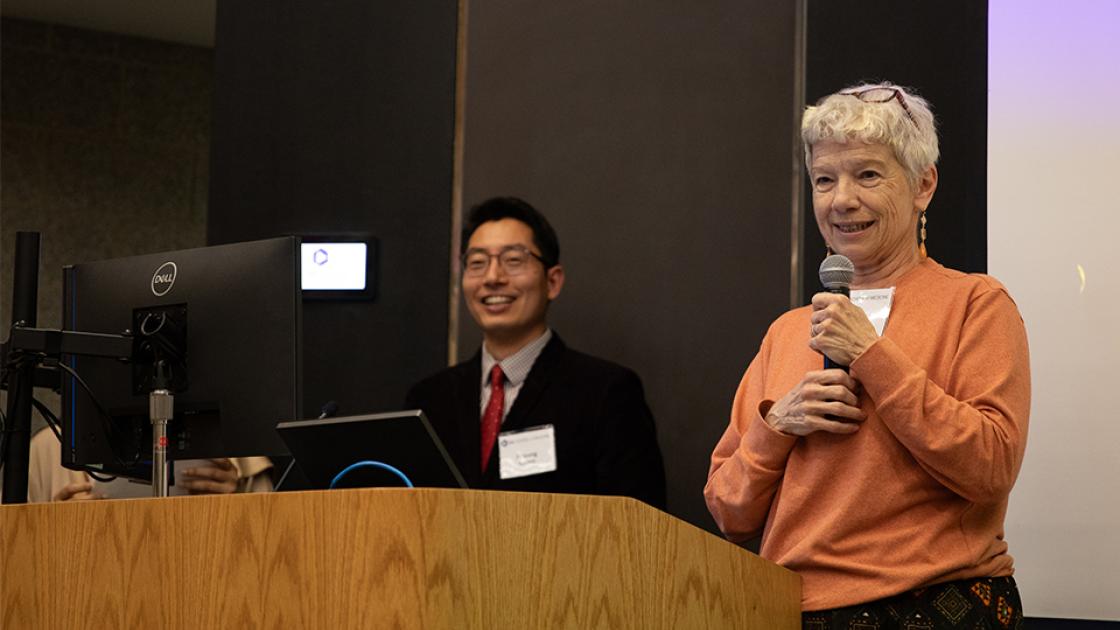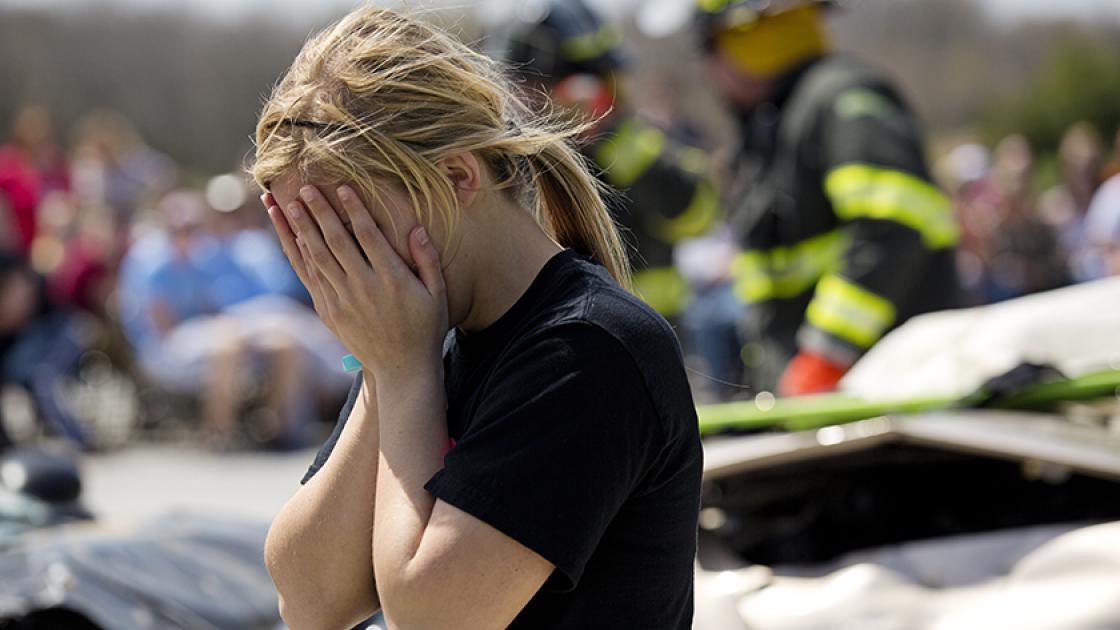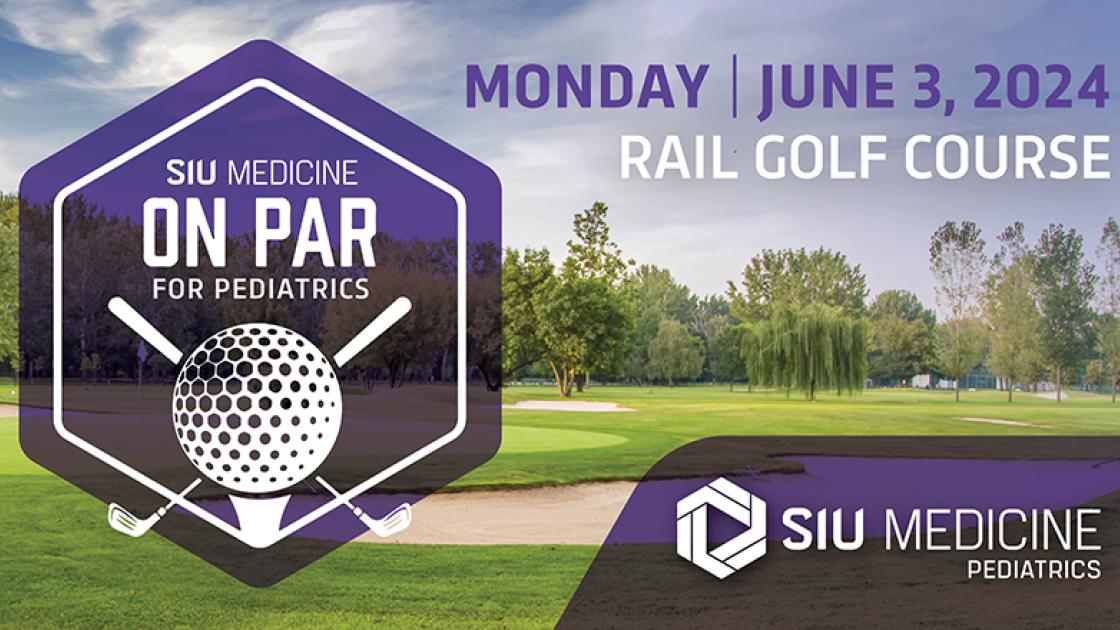
The Battle Rages On
written by Courtney Hall | artwork by Jordan Hammer
Published in Aspects Magazine Autumn 2017 (40-4)
“Your body just breaks down. It’s like being a football player. Everything breaks down more quickly than the average person.”
That’s what one veteran, who wished to remain anonymous and will be referred to as Sam for this story, told us about his experience in the military. “You’ve got to watch out for orthopedic issues even at 25 or 26 because of the stress you’re putting on your body.” That’s one of many health concerns that affect our returning troops.
Going into combat is a world most of us can’t imagine, but for the 1.2 million people serving in active military duty, it’s life. With that life comes struggles ranging from the debilitating but well publicized (like post-traumatic stress disorder) to the less discussed just-part-of-the-job issues like tinnitus and musculoskeletal injuries. Sam, who served as an infantry officer then a platoon leader in Iraq in 2010, didn’t even know it would be an issue until it was.
“Carrying sacks and vests, I didn’t realize how important it was to train for that until I was deployed,” he said. “Carrying 115 pounds, that’s not good for your body. But it’s very necessary and part of the job.”
The most common load returning troops carry, however, doesn’t come in the form of a sack or vest.
“Post-traumatic stress disorder occurs after a direct trauma or witnessing a trauma, but also occurs after indirect exposure to a traumatic event,” explains Eric Black, MD, assistant professor in the Department of Psychiatry at SIU School of Medicine. And it affects those most might not even consider. “Kids in the military whose families are affected by trauma often experience PTSD.”
The overwhelming pain of PTSD plagues millions. Many don’t seek help. That’s why SIU School of Medicine faculty members and students are working to provide aid to these veterans through patient care, research and outreach efforts.
“PTSD is characterized by reexperiencing the trauma in some ways—nightmares, flashbacks, intrusive thoughts,” Dr. Black says. “It can lead to other symptoms, like hypervigilance, jumpiness, irritability. Some people have a feeling of isolation, or a need to avoid all reminders of trauma.”
Many sufferers turn to alcohol and other drugs. And Dr. Black warns that its marks aren’t just on the returning veteran. “Hypervigilant and anxious behavior can spill over and result in domestic violence against a significant other,” he says.
Eventually, many succumb to it. According to a study by the Department of Veterans Affairs, an estimated 20 soldiers commit suicide each day. Veterans make up less than 9 percent of the population, but 18 percent of all suicides.
One such victim of PTSD was one of Sam’s best friends.
“He did three very hard tours in Afghanistan, and he would never tell anyone about what he was dealing with. He was such a hot-rod of a soldier; he was the equivalent of a Michael Jordan or a Tiger Woods, and when he died, it made more than a few of his good friends think, ‘If this guy succumbs, then where does that leave me?’”
The mental health issues that come with being in combat can be worsened by the societal impetus to be a soldier, on and off the platoon. Especially among men, the pressure to be strong—with strong being a euphemism for not seeking help no matter the cost—can be devastating.
“There’s definitely a stigma. Society wants them to be strong so they don’t reach out,” Dr. Black says. “There’s also a stigma with the military in general because they don’t want it to hurt their military careers. They’re afraid getting help might get on their record and they’ll lose opportunities for career advancement.”
“It’s definitely an issue, especially in this culture where you’re supposed to suck it up and move on,” Sam says.
Sam spent nine months in Baghdad at the tail end of the Iraqi surge. He came back from Iraq in late 2010, and eventually left the Army in 2012 after serving as executive officer over an infantry unit in the states.
The transition out of the war zone can be a difficult one.
“It wasn’t like we were fighting a war and the next day we woke up and we weren’t,” Sam says, referring to how long it takes between a war’s end and when their work as soldiers is actually done. “It’s a much more gradual transition.”
This is true of the health issues that plague veterans as well. It doesn’t stay on the battlefield. As Sam explains, it is difficult to start over after the immersive all-encompassing experience of being in combat.
“When your entire being and identity is tied up into being a front-line warrior, and you've given everything to that identity for years and years, stripping it away can be nearly as crippling as the mental health issues themselves,” he says. “The warfighter leaves his natural support group, the people with whom he has shared otherworldly experiences, the humor and vocabulary, the unspoken social bonds, and so forth, and he immediately enters a world that is sometimes incomprehensible to him, often at a pretty young age.”
There is hope for these returning veterans to quiet the voices and discover a new kind of peace.
“Most need some sort of medication, but they also need cognitive behavioral therapy or other supportive therapy,” Dr. Black says. “A lot of veterans seek help outside of the VA system and it’s important they find someone with expertise in PTSD. Make sure to do your homework.”
Another way to combat the effects of PTSD may lie in one surprising area: audiology. Members of the audiology research group at SIU are working to find ways of combatting and relieving tinnitus and noise-induced hearing loss often experienced by combat veterans. In 2016, auditory researchers acquired a new microscope to enhance work in laboratories studying these effects thanks to a $270,000 grant from the Office of Naval Research in the US Department of Defense. “Our research labs are making great progress on understanding and reversing hearing loss, and this new investigative tool will help us advance the work,” said Brandon Cox, PhD, assistant professor in pharmacology. “We also will use it for educational purposes, to train the PhD and postdoctoral fellows who are studying auditory pathways with us.”
Kathleen Campbell, PhD, distinguished scholar and research professor in the Department of Medical Microbiology, Immunology and Cell Biology, has devoted much of her career to the study of ototoxicity and otoprotective agents, essentially finding ways to reverse and prevent hearing loss. While developing a protective agent for chemotherapy-induced hearing loss, Campbell was so impressed with her results, she decided to contact the Navy and test it for noise-induced hearing loss. The project is now in phase 3 clinical trials. Results suggest the drug can be used as a preventative measure and to reverse recent hearing loss.
“For our troops, they don’t always know there’s going to be a noise,” Dr. Campbell explains. “They might not take it in advance. So we’re working on rescue so after a noise exposure we can revert the hearing exposure. We’ve got it to 36 hours. That’s significant protection when taken 36 hours after a noise event.”
In addition to being a debilitating condition in itself, tinnitus has been found to worsen PTSD through ringing in the ears or inability to hear. It’s also an expensive condition to treat.
“PTSD is the most talked about but tinnitus and hearing loss cost the most, and they feed into each other,” Dr. Campbell says. “There are other connections, too. You combat PTSD by talking about it. Usually in soft voices. That’s made harder with hearing loss. This drug will affect the ability to improve from PTSD.”
In addition to medical and research efforts, SIU School of Medicine students are working with the military in the closest way possible—by joining. Many SIU students have been awarded the Health Professions Scholarship Program (HPSP) scholarship, and that’s what led Alexis Scott, fourth-year medical student, to start the Military Students Group in 2015.
“A lot of us going into HPSP were interested in the military for one reason or another, but it was hard to find information on what was expected of you, what you have to do in medical school, what life looks like afterwards,” she says. “I got the military students together and started brainstorming different ways to share our experiences with each other and the incoming classes.”
Expanding from its original purpose, which is still an important element, the group’s mission is to explore the melding of military and medicine. Scott offers an example: “There’s 8 million acronyms in the military just like there’s 8 million in medicine so we sort out what they all mean. We learn from each other and alumni to pass down experiences or mistakes people have made along the way so the students can be clear in their expectations.”
In its first year, the group, which has 13 members at the Springfield campus, received a $500 Joining Forces grant from the American Association of Medical College’s Organization of Student Representatives. They opted to use the money to provide help to another health and social issue that plagues veterans: homelessness.
“When I think of homeless veterans I think of elderly people but a lot aren’t,” Scott says. “So many are in their 30s. They got deployed and then came back and life had kind of fallen apart for various reasons.”
For their first effort, they chose to donate practical items the rest of us take for granted.
“Homeless veterans in our area who were transitioning into temporary housing didn’t have any sheets or blankets, so we bought a ton,” Scott says. The group has also donated to Honor Flights. In the interest of what Scott calls “a desire for something more permanent,” the group is establishing a partnership with Salvation Army to cover costs of items the organization has difficulty purchasing, such as toiletries.
For Scott and her fellow military students, they’re happy to have each other as they face what comes next.
“I wasn’t sure what medicine was going to look like in the military,” Scott says. “But a lot of it is what we see every day at SIU; you’re just wearing a uniform. Recently I saw a man exhibiting very strong symptoms of PTSD. Seeing that as a med student, it’s just like ‘OK what am I going to do about this?’ It’s on-the-job training. They need help and I’m here for them.”



